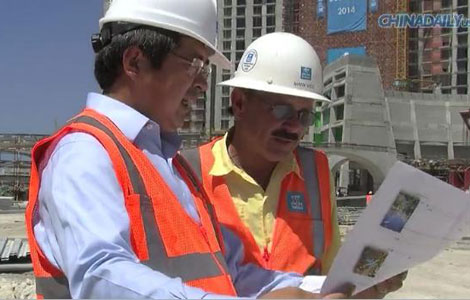Investment treaty tops agenda
Updated: 2014-10-10 13:10
By Chen Weihua in Washington(China Daily USA)
|
||||||||
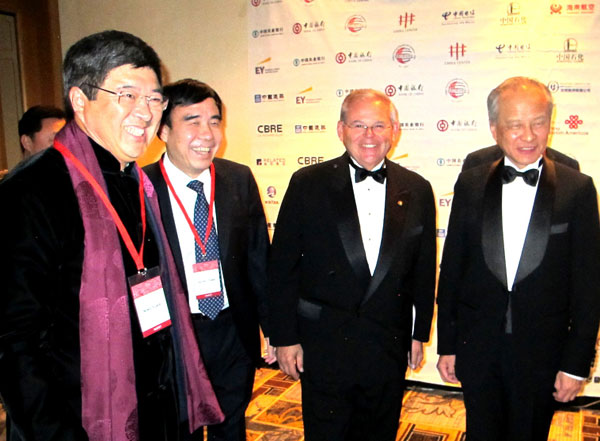 |
|
China-US Economic Finance & Investment Dialogue and China General Chamber of Commerce-USA 2014 Annual Gala was held on Thursday in Washington. From right: Chinese Ambassador to US Cui Tiankai, US Senator Robert Menendez, Bank of China Chairman Tian Guoli and CGCC USA Chairman Yuan Ning attend this event. Li Ge / China Daily |
Advancing a bilateral investment treaty between China and the United States was a key topic for government and business leaders at an annual gala Thursday in Washington DC.
Cui Tiankai, China's ambassador to the US, said the two countries have started unprecedented and substantive negotiations on the Bilateral Investment Treaty (BIT).
Cui compared the significance of the BIT to China's accession to the World Trade Organization in 2001, after which a decade of rapid economic growth made China the world's largest trading nation and second-largest economy. China is now the largest trading partner of more than 120 countries.
"It will provide tremendous opportunities for both Chinese and American investors with a more stable and predictable environment," Cui told the 2014 annual gala of the Chinese General Chamber of Commerce USA and the China-US Economic Finance and Investment Dialogue held at Washington's Four Seasons Hotel.
US Under Secretary of Commerce Stefan Selig highlighted the record US export sales to China last year. He said China is now the fastest-growing source of foreign direct investment into the US, which is growing at a compound annual rate of 40 percent since 2009.
He described China's rapid growth as benefiting not only China but also the US.
"We need to ask, 'Is it easier to tackle global challenges without China on our side?' We need to ask whether the US economy can maximize its growth potential without China on our side. I think the answer is clearly no," Selig said.
Former New York City Mayor Michael Bloomberg said the single most important step the two countries can take to strengthen their long-term relationship is adopting the BIT.
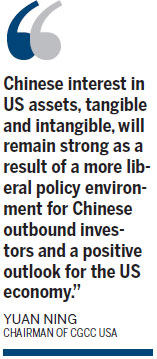
"The treaty will offer protections for Chinese and American investors," Bloomberg said. "It will also synchronize key regulatory standards, and it will open up more sectors for investors," he said.
Bloomberg pointed out that the US has BITs with some 40 countries, but not China, even though China has become one of the most important trading partners for the US.
"The trade negotiations are complex, I know that, and time-consuming, but we should commit ourselves to complete the treaty, because the benefits for both countries would be enormous," said the billionaire founder of Bloomberg LP.
Sen. Robert Menendez, chairman of the US Senate Committee on Foreign Relations, said he is looking forward to seeing the results of the negotiations.
He said that through the negotiations "our future can be enhanced."
Chinese companies invested about $14 billion in the US last year, up by 600 percent from 2005. This has brought Chinese foreign direct investment (FDI) in the US to $40 billion.
"Chinese interest in US assets, tangible and intangible, will remain strong as a result of a more liberal policy environment for Chinese outbound investors and a positive outlook for the US economy," said Yuan Ning, chairman of CGCC USA.
At Thursday's gala, CGCC USA presented the International Leadership Award to Stephen Howe, managing partner of Ernst & Young Americas; Wan Long, chairman of Hong Kong's WH Group; Jersey City Mayor Steven Fulop and CEO of Related Cos. Jeff Blau.
On Wednesday, China's Vice Finance Minister Zhu Guangyao said that the BIT negotiations are likely to be concluded in two years.
He saidChina and the US have made progress on the text of the treaty, and the two sides will start substantive negotiations on the "negative list," namely, sectors and items barred to each other's investment, early next year, Zhu was quoted as saying in a Xinhua report.
Zhu said he hoped that Chinese President Xi Jinping and US President Obama could give clear instructions to negotiating teams of both sides to advance the BIT talks when they meet next month in Beijing. Obama will attend the APEC leaders' summit in Beijing on Nov 10-11, followed by a one-day visit to China on Nov 12.
chenweihua@chinadailyusa.com
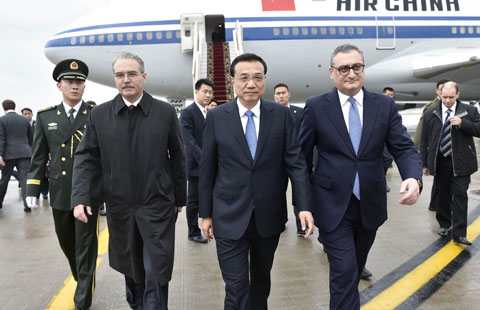
 Premier Li begins his Russia visit
Premier Li begins his Russia visit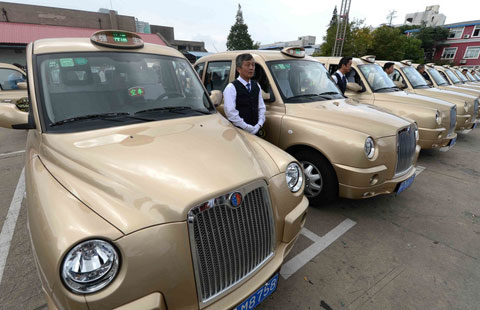
 Shanghai launches old-style cabs for special needs
Shanghai launches old-style cabs for special needs
 Cold wave brings first snowfall this autumn to Gansu
Cold wave brings first snowfall this autumn to Gansu
 27 Chinese hostages freed in Cameroon
27 Chinese hostages freed in Cameroon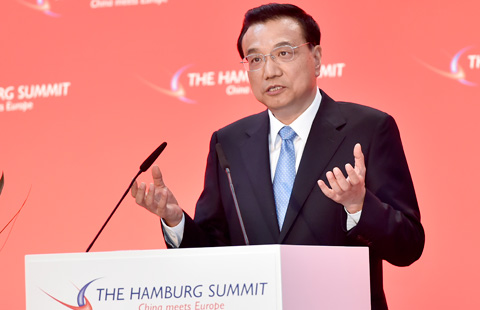
 Li says focus is on long-term growth
Li says focus is on long-term growth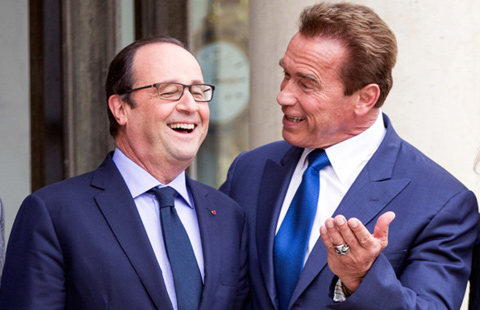
 Hollande meets with Arnold Schwarzenegger in Paris
Hollande meets with Arnold Schwarzenegger in Paris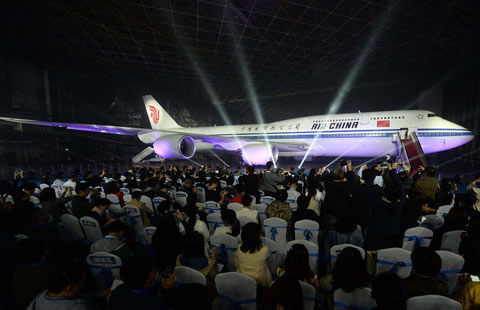
 Air China's first Boeing 747-8 set to take off
Air China's first Boeing 747-8 set to take off
 Malala's hometown celebrates her Nobel Peace Prize
Malala's hometown celebrates her Nobel Peace Prize
Most Viewed
Editor's Picks

|

|

|

|

|

|
Today's Top News
Texas health care worker tests positive for Ebola
Li arrives in Russia for official visit
1,552 new dengue cases reported in Guangdong
PLA warns of training mismatch with real combat
27 Chinese freed in Cameroon
China faces risks in Brazil's energy sector
Premier hails Hamburg's role in cooperation
Visit takes China-Germany ties to new height
US Weekly

|

|

